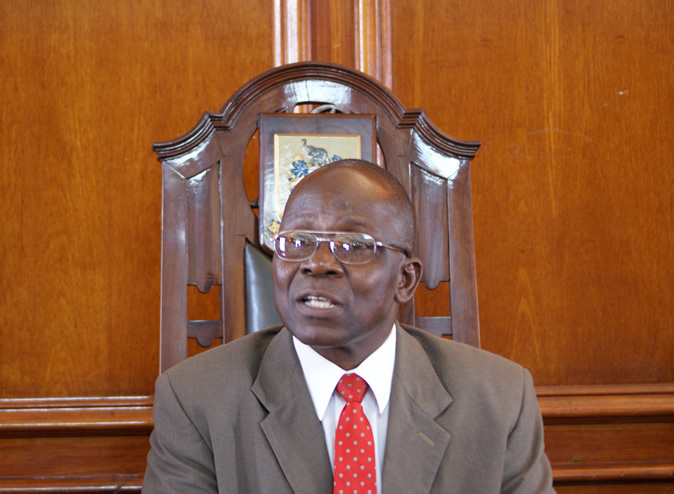Zim, EU to sign $270m funding deal

 Harare Bureau
Harare Bureau
Zimbabwe and the European Union will soon sign a 234 million euro (about $270 million) funding deal, while trade missions from Britain and Belgium are expected in the country, the Head of European Union Delegation to Zimbabwe Phillipe Va Damme, said on Friday.
The British delegation is expected this week while the Belgian mission is due in April amid growing interest from global powerhouses such as China and Russia to do business with Zimbabwe.
The two eastern giants have since penned mega deals with Zimbabwe ranging from mining, energy, transport among others, a move that has seen some European countries and America getting into panic mode.
The EU deal, dubbed the National Indicative Programme under the 11th European Development Fund (2014-2020), is part of a raft of long-term packages from the 27-member bloc, which is warming up to Zimbabwe after imposing sanctions in 2002.
“The amount is indeed 234 million euro and that amount translated in US dollars fluctuates with the exchange rate (but it’s about) 260/270 million depending on the exchange rate and that’s for the period up to 2020,” Ambassador Van Damme said in an interview.
“Under the National Indicative Programme, we’ve additional funding from other sources. We’ve regional programmes through Sadc, through the African Union through Comesa to be also in support of trade and regional integration.
“We’ve additional funds from specific budget lines for example we’ve budget lines related to food security. So that’s the minimum we’re speaking about. These amounts will be topped up with more ad hoc type of programmes of national, regional, international interests,” he explained.
The EU has been engaging government for the signing modalities, said Ambassador Van Damme, and all was set for the signing of the deals.
“We’re now in contact with the government to fix the date with the signature,” he said “We’re speaking of days not even weeks, over the next two weeks we should be able to sign up.”
Ambassador Van Damme said Zimbabwe needed capital investment both domestic and foreign, not aid, to develop sustainably while the country’s policies such as the indigenisation law needed to be clarified and consistently interpreted and applied.
“Investors need a legally predictable environment,” he said. “Not because we question the need for empowerment, but because the law as it stands isn’t clear enough, has loopholes, or things that are perceived as loopholes or exceptions, which are outside the law and which prevent people to take the investment risks which they want. There’s an interest for investing in Zimbabwe: the recent trade missions, the British trade mission, I’m not speaking of the EU side, the French trade mission, the upcoming British mission next week, and now from a Belgium trade mission coming in April as well. There’s an interest.”
He said that while the countries recognised the potential for investment in this country, they needed guarantees so that they would commit their capital.
President Robert Mugabe recently clarified that the 51-49 percent indigenisation/ownership model only applied to natural resource-based industry such as mining. The government has also assured investors that it will not apply a one-size-fits-all approach but will engage in sector-specific indigenisation models.











Comments